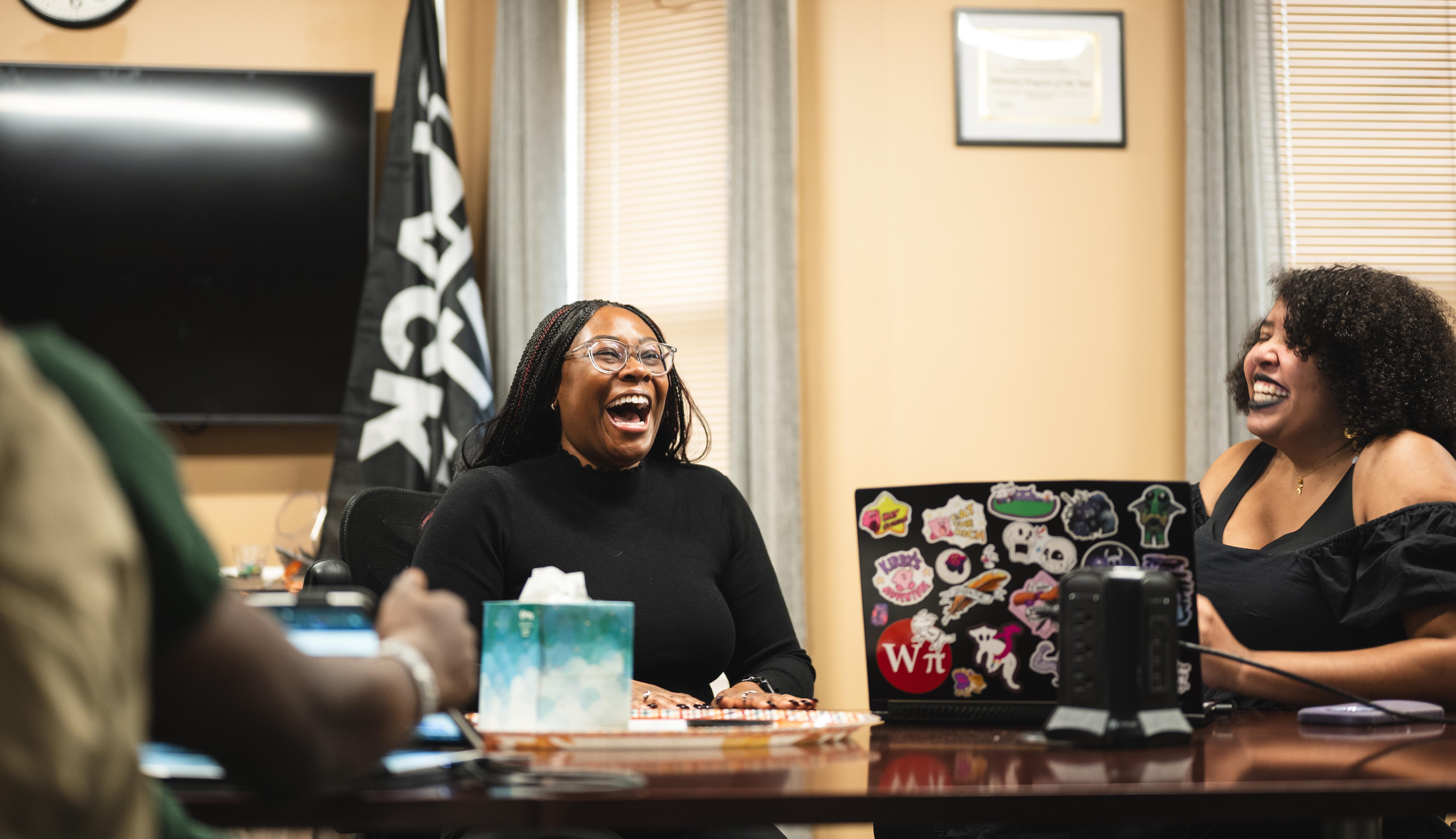Alesia LeSane began her career at WPI in Undergraduate Admissions, working on diversity and outreach initiatives. She draws on that experience in her new role in the Office of Diversity, Equity, Inclusion, and Multicultural Education (ODIME), where she serves as the assistant director for multicultural education and student success. LeSane oversees all aspects of the Connections Pre-Orientation Program, which helps students from groups traditionally underrepresented at WPI—including students of color, first-generation college students, and students in the LGBTQIAP+ community—acclimate to the college setting. She also coordinates campus-wide programs and events to support the university’s Black, Indigenous, People of Color/African American, Latin American, Asian American, and Native American (BIPOC/ALANA) students.
Q: Your position, perhaps more so than that of other ODIME assistant directors, relates directly to academics. Practically speaking, what does that look like?
A: Within my role, I really am focusing on reimagining and redefining student success. Part of that includes academic success. For example, for the students who participate in Connections, I check in with them each term during their first year at WPI. I assess their progress and make sure they have everything they need since we want their transition from high school to college to go smoothly. We recognize that there are going to be challenges but try not to let those be roadblocks. Even after that first year, it’s important to maintain relationships with these students because we want to make sure that they’re feeling supported the whole time they’re at WPI.
A big part of what I do is help students understand what resources are available and where they are on campus. And if I notice that a student is struggling, I encourage them to seek out help. I tell students all the time, “People are here to help you.” It can be challenging to ask for help because people may worry it can be seen as weak, which carries a stigma. But I really want students to learn how to use self-advocacy as a tool and to feel empowered by that.
I also connect directly with academic advisors to make sure there is another set of eyes on students of concern. My ultimate goal is to help students successfully navigate their academic, professional, or personal journeys, however that looks for them.
Q: As you work with BIPOC/ALANA students on campus, what are you seeing as the most pressing issues?
A: BIPOC and ALANA students face additional challenges when it comes to entering and navigating the college environment, especially at a predominantly white institution like WPI. Many of our BIPOC and ALANA students feel a lack of community and sense of belonging at WPI. There are many clubs and organizations on campus that give students space to be themselves, but some underrepresented students experience microaggressions in the classroom. Project-based learning has many benefits, but when underrepresented students are part of a team project, they often face added pressures to prove themselves, even though we know that they are equally capable of being successful.
Q: Speaking of around campus, what would you like the community at large to understand about their role in improving the atmosphere for BIPOC and ALANA students?
A: All of us at WPI have a common goal—making sure our students graduate and successfully contribute to society. It is everyone’s responsibility to allocate time and resources to help our BIPOC and ALANA students have better experiences. When we help some students, we help everyone. I always tell people that we need to look at students as people first, then as students. It is important to remember that everybody has different stories and that each student comes to campus with various lived experiences.
Q: Why are you passionate about this work?
A: I am deeply passionate about educational equity—it’s the foundation of my work. There are inequities throughout our education system, and in my work I both acknowledge the barriers to success and play a part in eliminating these obstacles for students. I value the ability to be an advocate and a champion because I believe every student should have the opportunity to succeed. I want to be a part of creating a culture of equity and fostering space for community at WPI. When I started doing admissions work, I wanted to make sure that BIPOC and ALANA students had access to college and that they knew higher education was attainable. Now that I’m in this position in ODIME, I’m enjoying working with current students and empowering them with the resources available. I want students to feel seen and heard on campus so they can build on that experience and be successful—both before and after they graduate.





